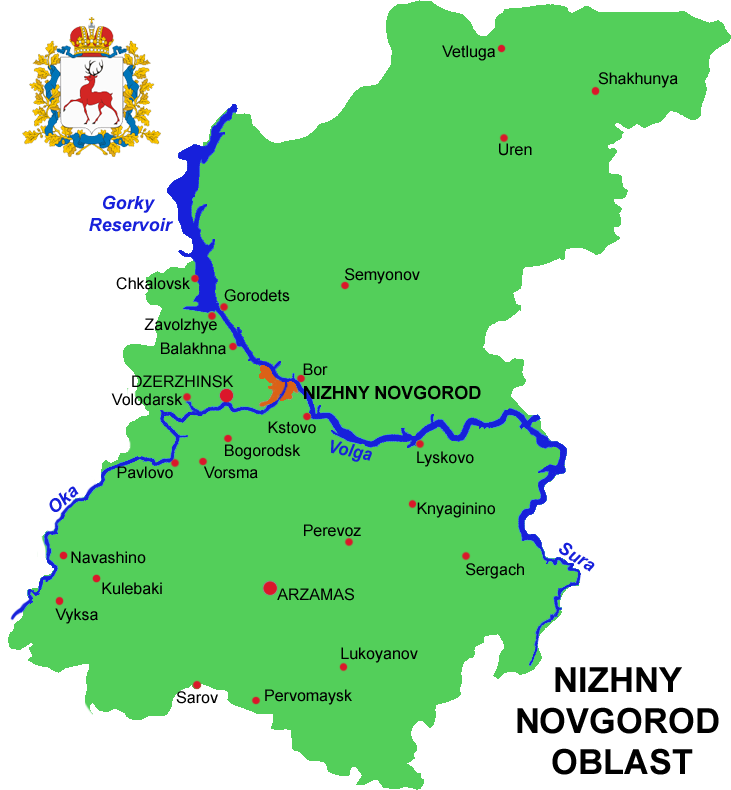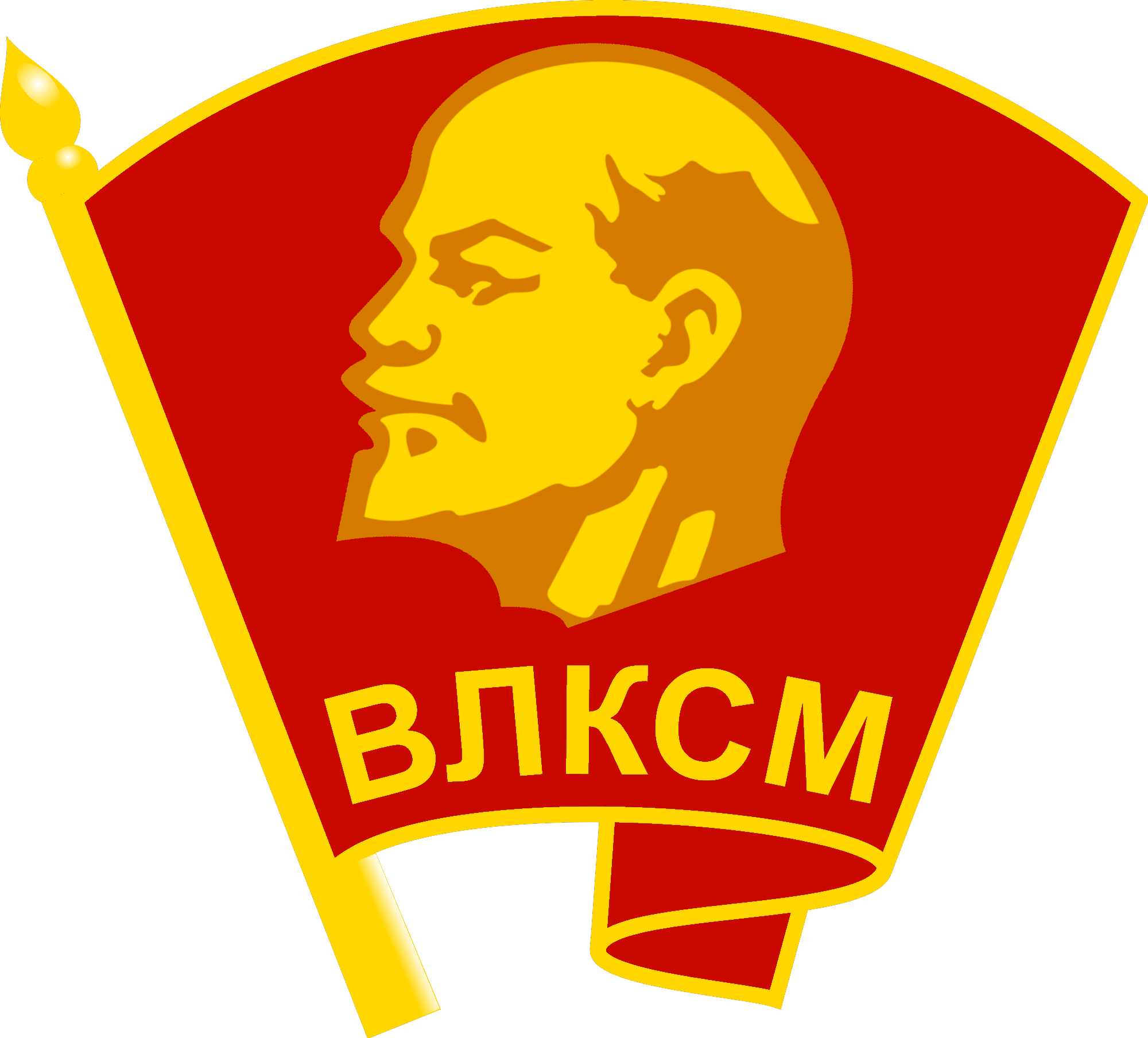|
Oscar Ryvkin
Oscar Lvovich Ryvkin ( Russian: Оскар Львович Рывкин; 4 January 1899 – 7 August 1937) also known by his alias O. Skar was a Soviet politician that served in various positions including First Secretary of the Central Committee of the Komsomol, First Secretary of the Krasnodar City Committee of the Communist Party of the Soviet Union, and a member of the Central Control Commission. Early life and education Oscar Ryvkin was born on January 4, 1899, to a Jewish family in Saint Petersburg in the Russian Empire. When he was young, Ryvkin worked as a student in a pharmacy and in a printing house. He graduated from the Institute of Red Professors in 1934. Political career Ryvkin joined the Russian Social Democratic Labour Party (Bolshevik) in March 1917. After the February Revolution, he joined the Red Guards as a fighter and served as the Secretary of the Petrograd Socialist Union of Workers' Youth. At the time, he was also a member of the editorial boar ... [...More Info...] [...Related Items...] OR: [Wikipedia] [Google] [Baidu] |
Saint Petersburg
Saint Petersburg ( rus, links=no, Санкт-Петербург, a=Ru-Sankt Peterburg Leningrad Petrograd Piter.ogg, r=Sankt-Peterburg, p=ˈsankt pʲɪtʲɪrˈburk), formerly known as Petrograd (1914–1924) and later Leningrad (1924–1991), is the second-largest city in Russia. It is situated on the Neva River, at the head of the Gulf of Finland on the Baltic Sea, with a population of roughly 5.4 million residents. Saint Petersburg is the fourth-most populous city in Europe after Istanbul, Moscow and London, the most populous city on the Baltic Sea, and the world's northernmost city of more than 1 million residents. As Russia's Imperial capital, and a historically strategic port, it is governed as a federal city. The city was founded by Tsar Peter the Great on 27 May 1703 on the site of a captured Swedish fortress, and was named after apostle Saint Peter. In Russia, Saint Petersburg is historically and culturally associated with t ... [...More Info...] [...Related Items...] OR: [Wikipedia] [Google] [Baidu] |
February Revolution
The February Revolution ( rus, Февра́льская револю́ция, r=Fevral'skaya revolyutsiya, p=fʲɪvˈralʲskəjə rʲɪvɐˈlʲutsɨjə), known in Soviet historiography as the February Bourgeois Democratic Revolution and sometimes as the March Revolution, was the first of two revolutions which took place in Russia in 1917. The main events of the revolution took place in and near Petrograd (present-day Saint Petersburg), the then-capital of Russia, where long-standing discontent with the monarchy erupted into mass protests against food rationing on 23 February Old Style (8 March New Style). Revolutionary activity lasted about eight days, involving mass demonstrations and violent armed clashes with police and gendarmes, the last loyal forces of the Russian monarchy. On 27 February O.S. (12 March N.S.) the forces of the capital's garrison sided with the revolutionaries. Three days later Tsar Nicholas II abdicated, ending Romanov dynastic rule and the Russian Empi ... [...More Info...] [...Related Items...] OR: [Wikipedia] [Google] [Baidu] |
Honorary Members Of The Komsomol
An honorary position is one given as an honor, with no duties attached, and without payment. Other uses include: * Honorary Academy Award, by the Academy of Motion Picture Arts and Sciences, United States * Honorary Aryan, a status in Nazi Germany * Honorary authorship, listing of uninvolved people as co-authors of research papers * Honorary César, awarded by the Académie des Arts et Techniques du Cinema, France * Honorary consul, an unpaid part-time diplomatic consul * Honorary Goya Award, by the Academia de las Artes y las Ciencias Cinematográficas de España, Spain * Honorary Police, unpaid police force in Jersey * Honorary Prelate, a title used in the Catholic Church * Honorary society (other), whose members are elected for meritorious conduct * honorary title, awarded as a mark of distinction ** Honorary citizenship, awarded to aliens who have rendered service to the state ** Honorary degree, academic degree awarded to someone not formally qualified to receive ... [...More Info...] [...Related Items...] OR: [Wikipedia] [Google] [Baidu] |
Military Collegium Of The Supreme Court Of The Soviet Union
The Military Collegium of the Supreme Court of the Soviet Union (Russian: Военная коллегия Верховного суда СССР, ''Voennaya kollegiya Verkhovnogo suda SSSR'') was created in 1924 by the Supreme Court of the Soviet Union as a court for the higher military and political personnel of the Red Army and Fleet. In addition it was an immediate supervisor of military tribunals and the supreme authority of military appeals. During 1926–1948 the Chairman of the Collegium was Vasiliy Ulrikh. The role of the Military Collegium drastically changed after June 1934, when it was assigned the duty to consider cases that fell under Article 58, counter-revolutionary activity. During the Great Purge of 1937–1938 the Military Collegium tried relatively prominent figures, usually based on the lists approved personally by Joseph Stalin, the majority of Article 58 cases having been processed extrajudicially by NKVD troikas. In particular, the Military Collegium c ... [...More Info...] [...Related Items...] OR: [Wikipedia] [Google] [Baidu] |
Rabkrin
The People's Commissariat of the Workers' and Peasants' Inspection, also known as Rabkrin (; РКИ, RKI; Workers' and Peasants' Inspectorate, WPI) was a governmental establishment in the Soviet Union of ministerial level (people's commissariat) responsible for scrutinizing the state, local, and enterprise administrations. Beginnings of Rabkrin Beginning on February 7, 1920, the Central Executive Committee of the Soviet Union established the Rabkrin to succeed the People’s Commissariat for State Control. The term "Rabkrin" comes from the Russian title Narodniy Kommissariat Raboche-Krestyanskoy Inspekciyi, the People’s Commissariat of the Workers’ and Peasants’ Inspectorate. Rabkrin was put in place to ensure the effectiveness of the newly created Soviet Government, which had experienced bureaucratic turmoil beginning with the Russian Revolution and had continued into the Russian Civil War. While the People’s Commissariat for State Control was a key institute for creating ... [...More Info...] [...Related Items...] OR: [Wikipedia] [Google] [Baidu] |
Nizhny Novgorod Oblast
Nizhny Novgorod Oblast (russian: link=no, Нижегородская область, ''Nizhegorodskaya oblast''), is a federal subjects of Russia, federal subject of Russia (an oblast). Its administrative center is the types of inhabited localities in Russia, city of Nizhny Novgorod. It has a population of 3,310,597 as of the Russian Census (2010), 2010 Census. From 1932 to 1990 it was known as Gorky Oblast. The oblast is crossed by the Volga River. Apart from Nizhny Novgorod's metropolitan area (including Dzerzhinsk, Russia, Dzerzhinsk, Bor, Nizhny Novgorod Oblast, Bor and Kstovo) the biggest city is Arzamas. Near the town of Sarov there is the Serafimo-Diveyevsky Monastery, one of the largest convents in Russia, established by Seraphim of Sarov, Saint Seraphim of Sarov. The Makaryev Monastery opposite of the town of Lyskovo, Nizhny Novgorod Oblast, Lyskovo used to be the location of the largest fair in Eastern Europe. Other historic towns include Gorodets, Nizhny Novgorod Oblast ... [...More Info...] [...Related Items...] OR: [Wikipedia] [Google] [Baidu] |
Young Communist International
The Young Communist International was the parallel international youth organization affiliated with the Communist International (Comintern). History International socialist youth organization before World War I After failed efforts to form an international association of socialist youth organizations in 1889 and 1904, in May 1907 a conference in Stuttgart, Germany convened to form the International Union of Socialist Youth Organisations (the ''Internationale Verbindung Sozialistischer Jugendorganisationen'', abbreviated IVSJO). IVSJO maintained its headquarters in Vienna and functioned as the youth section of the Second International. At its foundation the International Secretary of IVSJO was Hendrik de Man. De Man was succeeded by Robert Danneberg, who held the post from 1908 to 1915. The first Chairman of the IVSJO was the German anti-militarist radical Karl Liebknecht. Liebknecht served as an inspiration and "elder statesman" for radical youth throughout Europe. The coming o ... [...More Info...] [...Related Items...] OR: [Wikipedia] [Google] [Baidu] |
People's Commissariat For Education
The People's Commissariat for Education (or Narkompros; russian: Народный комиссариат просвещения, Наркомпрос, directly translated as the "People's Commissariat for Enlightenment") was the Soviet agency charged with the administration of public education and most other issues related to culture. In 1946, it was transformed into the Ministry of Education. Its first head was Anatoly Lunacharsky. However he described Nadezhda Krupskaya as the "soul of Narkompros". Mikhail Pokrovsky, Dmitry Leshchenko and Evgraf Litkens also played important roles. Lunacharsky protected most of the avant-garde artists such as Vladimir Mayakovsky, Kazimir Malevich, Vladimir Tatlin and Vsevolod Meyerhold. Despite his efforts, the official policy after Joseph Stalin put him in disgrace. Narkompros had seventeen sections, in addition to the main ones related to general education, e.g., * Likbez, a section for liquidation of illiteracy, * " Profobr", a section for pro ... [...More Info...] [...Related Items...] OR: [Wikipedia] [Google] [Baidu] |
Komsomol
The All-Union Leninist Young Communist League (russian: link=no, Всесоюзный ленинский коммунистический союз молодёжи (ВЛКСМ), ), usually known as Komsomol (; russian: Комсомол, links=no ()), a syllabic abbreviation of the Russian ), was a political youth organization in the Soviet Union. It is sometimes described as the youth division of the Communist Party of the Soviet Union (CPSU), although it was officially independent and referred to as "the helper and the reserve of the CPSU". The Komsomol in its earliest form was established in urban areas in 1918. During the early years, it was a Russian organization, known as the Russian Young Communist League, or RKSM. During 1922, with the unification of the USSR, it was reformed into an all-union agency, the youth division of the All-Union Communist Party. It was the final stage of three youth organizations with members up to age 28, graduated at 14 from the Young Pioneer ... [...More Info...] [...Related Items...] OR: [Wikipedia] [Google] [Baidu] |
October Revolution
The October Revolution,. officially known as the Great October Socialist Revolution. in the Soviet Union, also known as the Bolshevik Revolution, was a revolution in Russia led by the Bolshevik Party of Vladimir Lenin that was a key moment in the larger Russian Revolution of 1917–1923. It was the second revolutionary change of government in Russia in 1917. It took place through an armed insurrection in Petrograd (now Saint Petersburg) on . It was the precipitating event of the Russian Civil War. The October Revolution followed and capitalized on the February Revolution earlier that year, which had overthrown the Tsarist autocracy, resulting in a liberal provisional government. The provisional government had taken power after being proclaimed by Grand Duke Michael, Tsar Nicholas II's younger brother, who declined to take power after the Tsar stepped down. During this time, urban workers began to organize into councils (soviets) wherein revolutionaries criticized the pro ... [...More Info...] [...Related Items...] OR: [Wikipedia] [Google] [Baidu] |
First All-Russian Congress Of Unions Of Workers Members
First or 1st is the ordinal form of the number one (#1). First or 1st may also refer to: * World record, specifically the first instance of a particular achievement Arts and media Music * 1$T, American rapper, singer-songwriter, DJ, and record producer Albums * ''1st'' (album), a 1983 album by Streets * ''1st'' (Rasmus EP), a 1995 EP by The Rasmus, frequently identified as a single * '' 1ST'', a 2021 album by SixTones * ''First'' (Baroness EP), an EP by Baroness * ''First'' (Ferlyn G EP), an EP by Ferlyn G * ''First'' (David Gates album), an album by David Gates * ''First'' (O'Bryan album), an album by O'Bryan * ''First'' (Raymond Lam album), an album by Raymond Lam * ''First'', an album by Denise Ho Songs * "First" (Cold War Kids song), a song by Cold War Kids * "First" (Lindsay Lohan song), a song by Lindsay Lohan * "First", a song by Everglow from ''Last Melody'' * "First", a song by Lauren Daigle * "First", a song by Niki & Gabi * "First", a song by Jonas Br ... [...More Info...] [...Related Items...] OR: [Wikipedia] [Google] [Baidu] |




